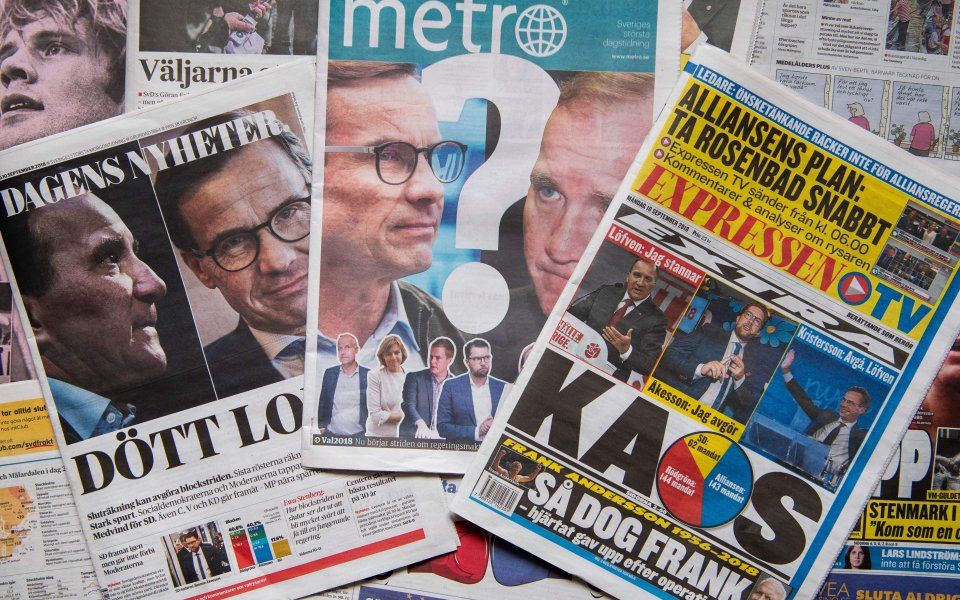The EU’s existential crisis has spread to Sweden

The tide of political upheaval has spread to Sweden, whose election has shaken any delusion that anti-EU frustration is confined to the Brexit-voting UK.
In Sweden’s system of compromise and coalition, the far-right Sweden Democrats (SD) have been the big winners.
While SD did not do as well as some had predicted, winning 17.6 per cent of the votes as opposed to the one in four that supporters had hoped for, the result represents a staggering gain from 12.9 per cent four years ago, especially for a party that for years has been tied to neo-Nazi movements.
Read more: Sweden in deadlock after polls show leading blocs neck-and-neck
The governing Social Democrats, meanwhile, fell to their lowest support levels in a century, and the centre-right Moderates also lost votes. While the Prime Minister has vowed to piece together a fragile coalition, SD’s newfound influence on parliament is undeniable.
Sweden, which took in more migrants per capita than any other EU nation, is evidently struggling with the same forces of populism as elsewhere on the continent. SD’s message – that it’s a question of more immigration versus protecting Sweden’s generous welfare state – was compelling.
It is impossible not to draw comparisons between other elections in the past year, namely Germany’s, which saw Angela Merkel cling to power while the anti-immigration Alternative for Germany became the official opposition, and Italy, where the far-right Northern League and anti-establishment Five Star Movement shunned the mainstream parties to form a governing coalition.
Meanwhile, Hungary is leading an eastern bloc against further integration, particularly with regards to immigration, and French President Emmanuel Macron, once considered the shining star of centrist europhilic politics, has seen his approval ratings tank.
Political sentiment across Europe is changing. West, south, east, and now with Sweden in the north, voters are turning on established parties, political movements are fragmenting, and frustration with consensus politics is on the rise. Heavyweights like Guy Verhofstadt and Michel Barnier might like to lecture Britain on the sanctity of the European project and the stringency of the bloc’s red lines, but even aside from Brexit, the EU is in existential crisis.
Jean-Claude Juncker’s upcoming State of the Union will reportedly focus on the theme of a Europe that Protects. The fact that concerns about security and cohesion have led opposition to its core aims to bleed into the traditionally stable and socially progressive Scandinavian realms would imply that he may be attempting to close a stable door after the horses have bolted.
Read more: Boris and Brexit to dominate party conference season… again